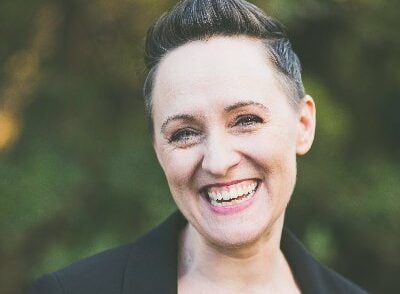Dr. Christy Newman is a social researcher of health, gender and sexuality at the UNSW Centre for Social Research in Health. Their research explores the diverse ways in which health is practiced today in the context of changing approaches to forming and taking care of relationships, families, and communities, with a focus on sexuality and gender diverse communities, and those living with the social impacts of HIV and viral hepatitis stigma.
Here Christy discusses their research project called ‘My Health, Our Family’.
“‘Blood-borne viruses’ is the term that we use to describe three viruses in particular: HIV, hepatitis C and hepatitis B. The other term that we use in the areas that I work is ‘sexually transmissible infections’, and sometimes blood-borne viruses are also sexually transmissible.
So HIV in particular fits both of those categories, but ‘blood-borne’ is the category that gets used internationally for those three. One of the things that links all three of those are the different forms of social stigma that get associated with the transmission practices associated with those particular viruses, but also ideas around living with those viruses, including options for treatment and care.
So that’s one of the things that is important to bring into this discussion. The term ‘serodiscordant’ is another term, which comes from health literature. It’s mainly used in the context of HIV to describe a relationship between two people with different viral statuses, so one person is living with the virus and another person who is not. And usually it gets used in relation to people in intimate partnerships or relationships, particularly sexual relationships, where there is considered to be a risk of transmission.
I work in the Centre for Social Research in Health which has always been interested in the social dynamics essential to understanding and responding effectively to prevent the transmission of blood-borne viruses, in particular.
We were very lucky to be funded by the Australian Research Council with a Discovery Project grant. The wonderful thing about a discovery project is – you can probably tell from the name – it can be really exploratory and we needed to be quite ambitious in what we wanted to achieve. I’m a qualitative researcher, which means I’m all about capturing people’s stories, I like to go in depth into people’s experiences, to capture the stories from as diverse a range of families as we could find.
We interviewed 61 people who either had their own experience of a diagnosis of one or more of those blood-borne viruses, or they’re a family member of somebody affected. We also interviewed 20, I think, stakeholders, working in blood-borne viruses care, family policy, and other clinical aspects of this topic area.
We ended up with a huge amount of qualitative data, stories of all kinds, and an incredible diversity in the kinds of stories that people were telling us, with ages ranging from, I think, 15 to 89. We had all genders, all sexualities, incredible cultural diversity as well. And a lot of difference in terms of how recently people had been diagnosed as well. So we got to have a sense of different experiences over time.
I would say that there’s really useful stories and insights there about how disclosure is managed in particular among families. How families responded to a disclosure, but also what families do with that information afterwards, like who they will talk to, what the kind of agreements are within families about who gets to hold that information, how they manage it, and what that story means about the family.
We heard stories of families that were really profoundly affected (by diagnosis), a lot of shock, some blame and rejection, but we also heard incredible stories of families who were really rallying around to provide support in emotional forms, in practical, and financial, all kinds of different forms and that was really wonderful.
I should clarify that we didn’t define ‘family’. People defined that for themselves. We didn’t have any expectation that it needed to be defined around biology or family of origin or even particular kinds of family relationships within those narratives. So indeed, people were very diverse in the definitions of who counted as family for them.
But we will say that even among people who defined key partners and friends and colleagues and neighbors – and even beloved animals – as part of their families, the stories often fell back into thinking about family of origin and biological relationships. It speaks to how powerful those relationships remain socially for us, despite all of the changes that we’ve seen in the way that ‘family’ gets valued today.
I think the takeaway from this study is recognising that blood-borne viruses are described by many people who are affected, as beyond the individual, as a family affair, as something that was really a shared concern. And I think we can take heart from that, because it means that for people who are directly affected, it’s not just up to them to manage things themselves. They are embedded within social networks.
We also know that families of course, are not positive in structures or relationships for everybody. They can be sites of incredible hurt and harm. So we’re not being naive here about families always being a good thing. But we don’t want to assume that families are going to reject, or are going to be unable to understand. We heard story after story of people who had no connection with blood-borne viruses before a loved one was diagnosed, then diving in and learning what they needed to learn and then taking that on and becoming educators in their own communities. And I think that’s just incredibly inspiring.”










